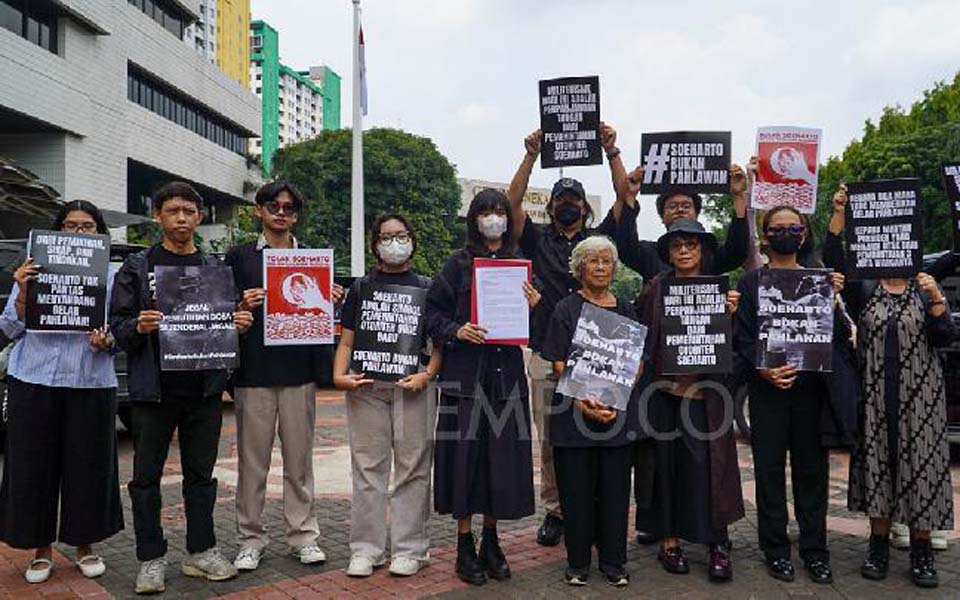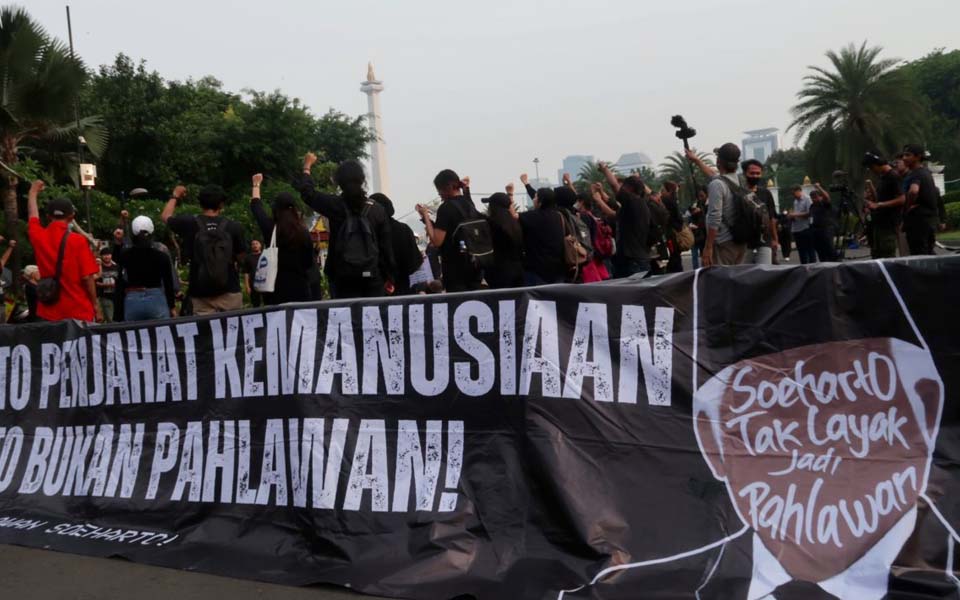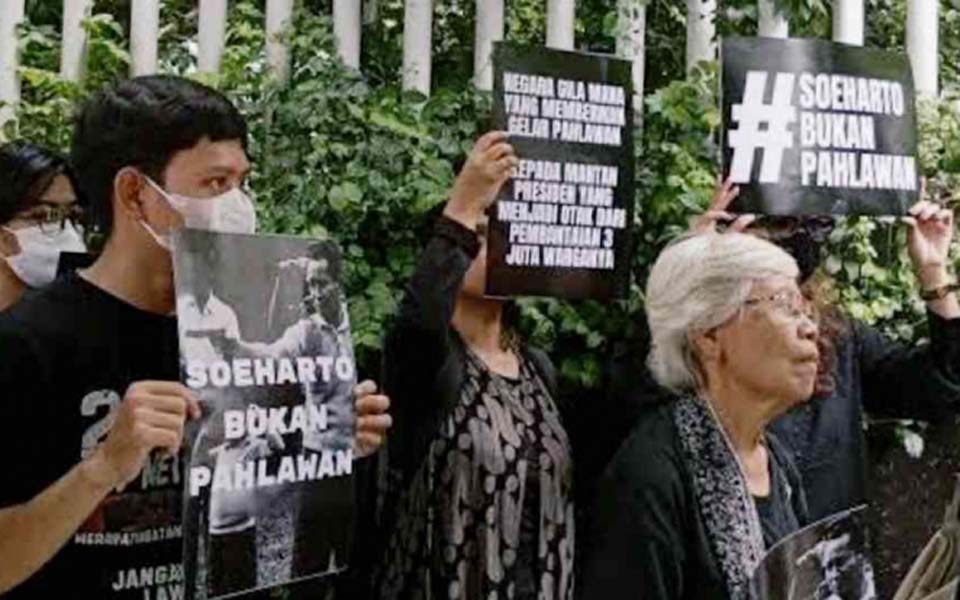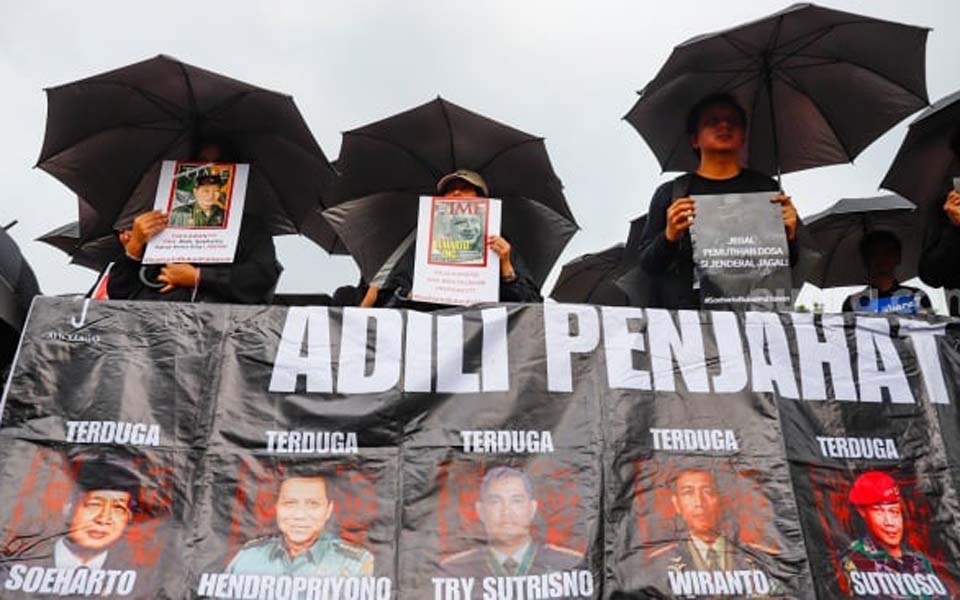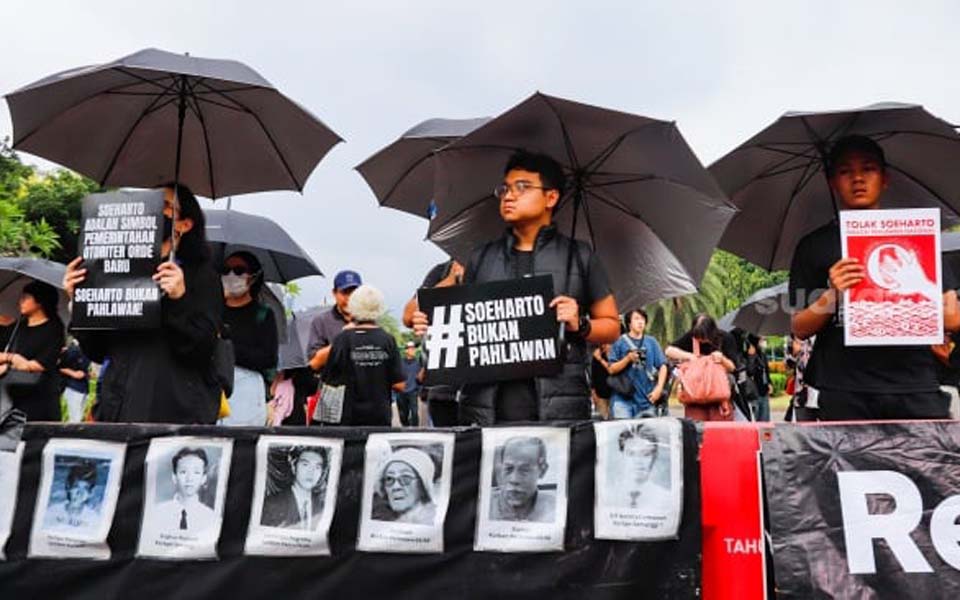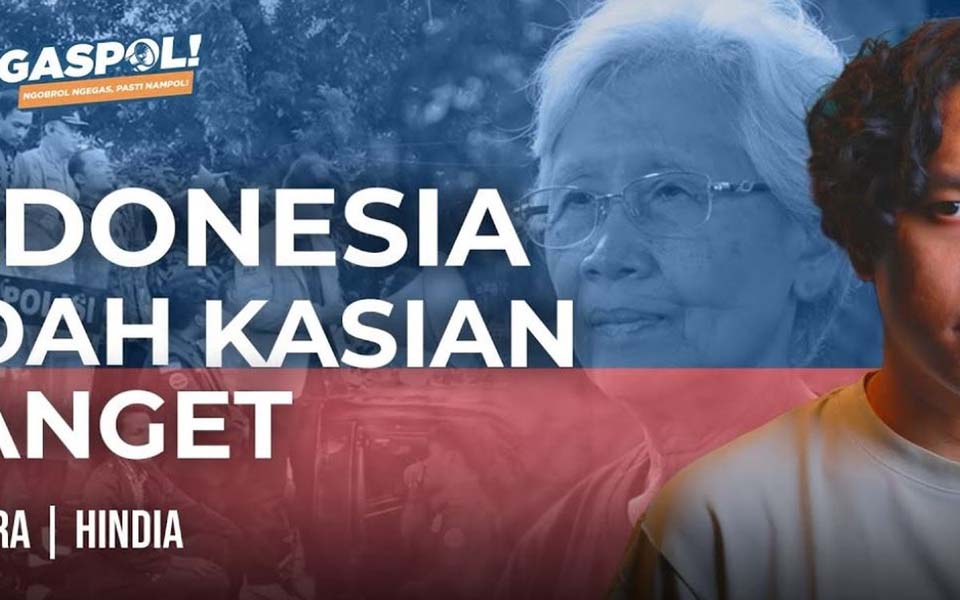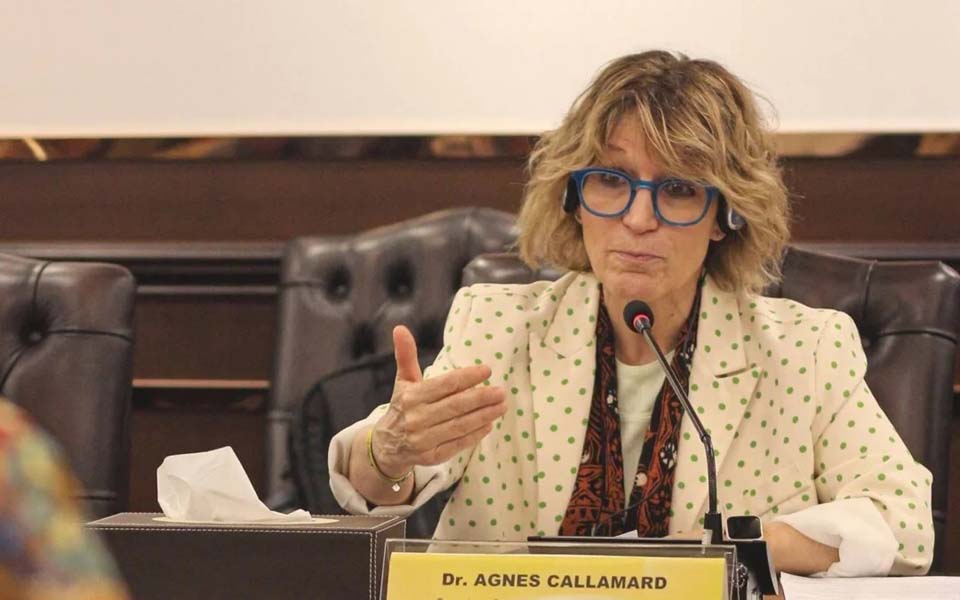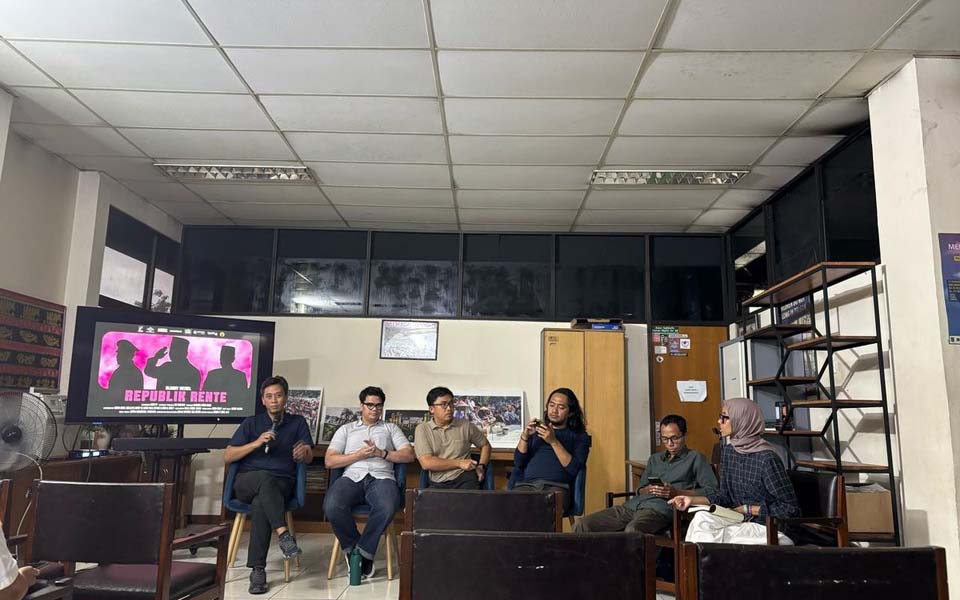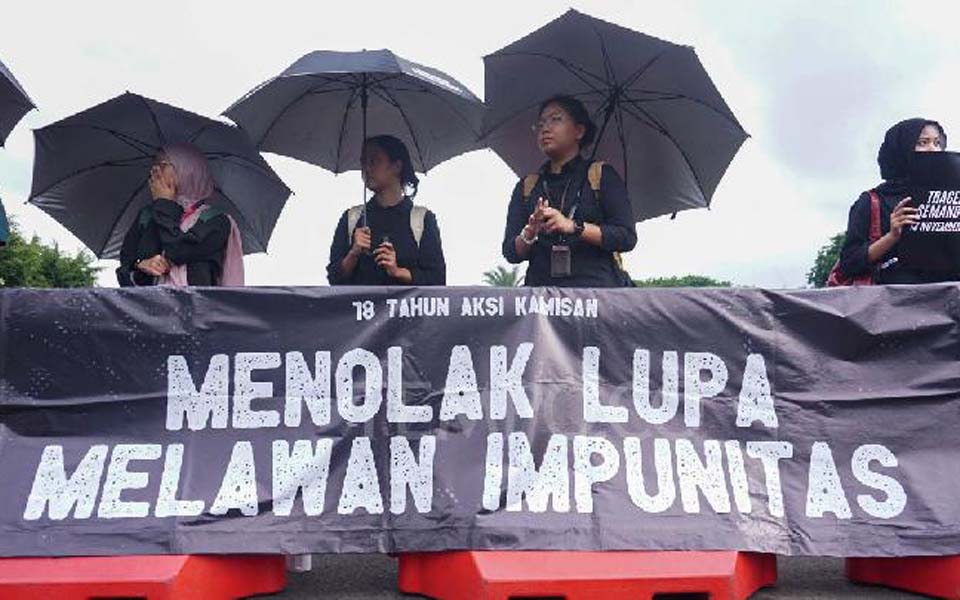Hendra Pasuhuk – A seminar by the International People’s Tribunal (IPT1965) titled Indonesia’s 1965 Massacre: Unveiling The Truth, Demanding Justice that was held in the Den Haag on April 10 on the 1965 massacres in Indonesia, which resulted in the killing of hundreds of thousands of people, has raised several new aspects related to the affair. 2015 could be a decisive year for the investigation of various other gross human rights violations.
Former Dutch minister for development aid, Jan Pronk, raised the question as to why the Netherlands has preferred to remain silent on the humanitarian crimes that took place in Indonesia in 1965. As the former coloniser of Indonesia, the Netherlands appears to have sought to tread carefully and safeguard its quite significant business interests and investments in Indonesia.
Hundreds of thousands of Indonesian citizens who were accused of involvement in the Indonesian Communist Party (PKI) were killed in 1965. In the years that followed, sympathisers and family members were isolated and stigmatised. The total number of victims of the 1965 killings is still not fully known because investigations into affair were taboo during the New Order regime under the leadership of former president Suharto.
The decades of New Order propaganda an agitation about the brutality of the PKI and organisations affiliated with the political party still grip Indonesian society to this day. The IPT1965 is seeking to break open the taboos and veil that has obscured this humanitarian calamity through a series of events and publication both in Indonesia and overseas.
Sensitive issue
Professor Saskia Wieringa, who spoke on the international dimension of human rights at the seminar said that the 1965 affair is still a very sensitive issue in Indonesia. A similar view was conveyed by Jan Pronk who said that the Netherlands also committed war crimes in Indonesia.
Gerry van Klinken, a researcher from Leiden University, elaborated on how the 1965 affair was not just a “military crime” against citizens as it is often portrayed. “This affair indicates that when it took place there was a huge cleavage within society”, said Klinken. This is because it was not just the military but also religious groups, both Islamic and Christian, that were involved in the mass killings.
Lawyer and legal observer Todung Mulya Lubis said that it would be impossible to initiate legal proceedings over the 1965 affair. This is because New Order forces still have a huge influence. “But this must become a principle agenda item for the administration of Jokowi [President Joko Widodo]”, said Lubis. Moreover it could open the way for investigations into other gross human rights violations such as Tanjung Priok, Talangsari, Aceh, East Timor, Papua and the assassination human rights activists Munir.
Learning from other countries
Jan Pronk suggested that Indonesia learn from other countries such as Rwanda in order to resolve the 1965 mass killings. He also recalled that at the time that many Western block countries had an interest in containing communism in Indonesia and removing President Sukarno who they saw as supporting the left and socialist block.
Nursyahbani Katjasungkana SH, one of the IPT1965 coordinators, admitted that it is not easy to publically raise the issue of the 1965 mass killings. When the IPT11965 website <http://1965tribunal.org/> was launched in Jakarta, the committee invited a number of media to cover the event. Journalists did indeed come but it was not reported she said. Instead, the Detik.com news portal carried a story about IPT1965 from the Netherlands, not Jakarta.
So far only a few media have carried articles on the IPT1965’s activities, including among others Deutsche Welle (DW), Detik.com and Tempo Interactive. Pos Kota News carried a report on the IPT1965’s seminar in Den Haag by quoting from a story by DW.
Todung Mulya Lubis conceded that 1965 is not a sexy issue for the media like corruption and admitted to being pessimistic that the situation will change in the short term. This is because in 2012 the National Human Rights Commission (Komnas HAM) released a full report complete with data and recommendations on the 1965 affair. The report was the result of four years research as mandated under Law Number 26/2000 on a Human Rights Court. To this day however, there has been no follow up from the government.
[Translated by James Balowski for the Indoleft News Service. The original title of the report was Peristiwa 1965 Bisa Membuka Pintu bagi Pengusutan Pelanggaran HAM Lain.]
Source: http://www.dw.de/peristiwa-1965-bisa-membuka-pintu-bagi-pengusutan-pelanggaran-ham-lain/a-18378090






